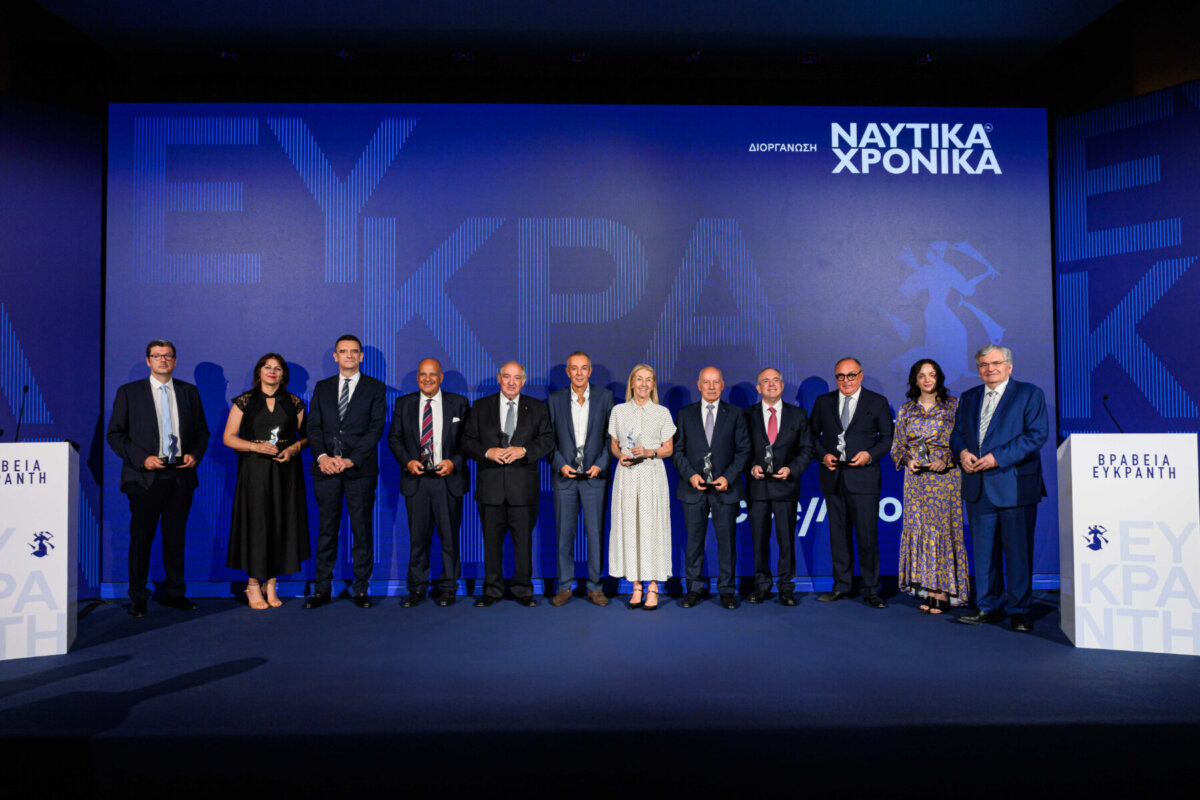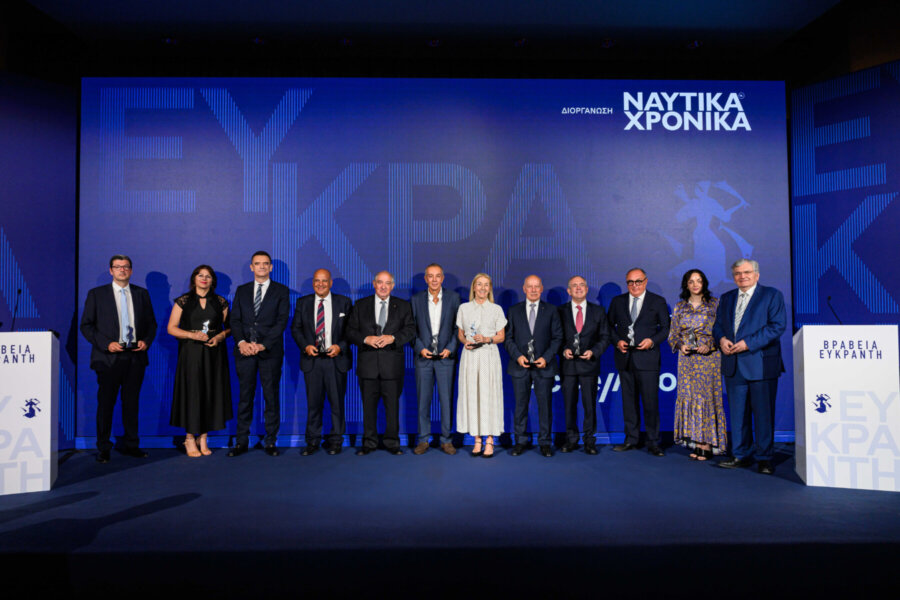
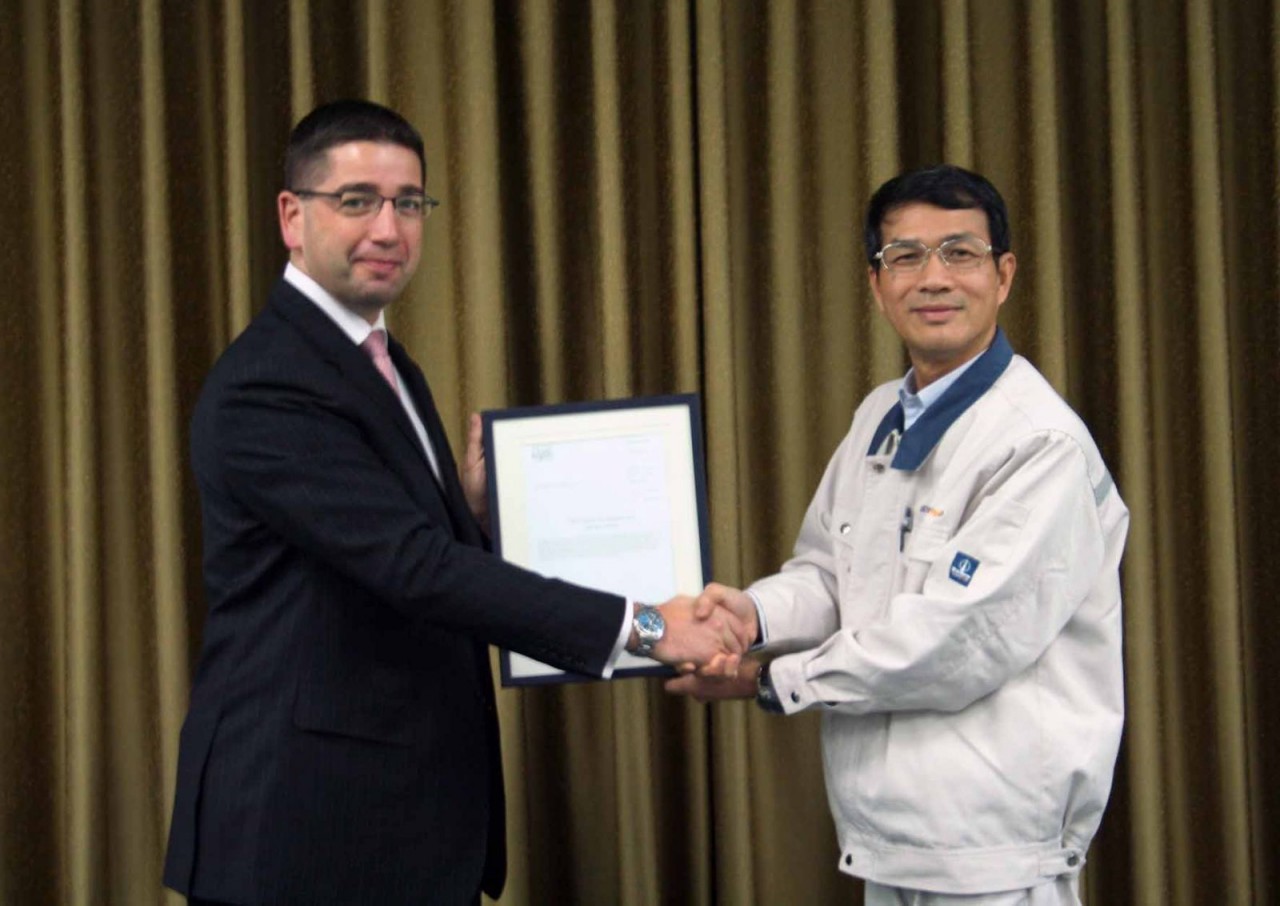
LNG fuelled bulk carrier design developed by COSCO Shipyard Group, Golden Union and Lloyd’s Register
LNG fuelled bulk carrier design developed by COSCO Shipyard Group, Golden Union and Lloyd’s Register

Lloyd’s Register has provided approval in principle (AIP) for the new ‘Clean Sky’ bulk carrier design incorporating an LNG-as-fuel system. COSCO, Golden Union and Lloyd’s Register started the project in June 2011 to investigate the potential to develop a commercially viable bulk carrier design based on an existing COSCO conventional design, but employing gas powered propulsion systems.
The ‘Clean Sky’ design builds in flexibility by enabling owners to choose dual, or tri-fuel engines able to burn, heavy fuel oil (HFO) or diesel, as well as LNG.
Nick Brown, Lloyd’s Register’s Area General Manager and Marine Manager, Greater China: “This news moves the industry far beyond the concept stage. A ‘Clean Sky’ ship could be built next year. We have addressed the technology issues; the approval in principle that we issued today only comes after exhaustive risk investigations into the gas containment, bunkering systems and performance assessment.”
Various containment systems and configurations were considered by the project team, but the final choice was for a single, 1,160 m3 type ‘C’ tank that sits aft on the port side (see accompanying images). Lloyd’s Register’s Risk Methodology for Novel Technology process provided a pathway through the complexity of the technical risk assessment.
COSCO Shipyard Group’s Head of Engineering, Zhan Shu Ming, commented: “COSCO Shipyard Group has a strong sense of social responsibility. We are innovating to help shipowners meet new IMO emissions and performance requirements. Society is looking for alternatives to current fuels, which are also rising in price. The increased availability of gas reserves and the emissions benefits are driving interest in LNG as an alternative fuel. With COSCO Shipyard Group’s depth of experience in building Kamsarmax bulk carriers, we are now very well placed to build bulk carriers with the new gas technology. Our development in LNG as an alternative fuel technology will not be only limited to the application to bulk carrier designs, but also for other ship types. The current achievement is only the beginning of our research and development for LNG as an alternative fuel and the COSCO Shipyard Group, as a pioneer in this new technology, is committed to even more in-depth research in the future.”
Golden Union: “The particularly tough environmental requirements mean vessels will have to comply with the International Maritime Organisation’s Tier III regulations by 2016 and this opens up demand for new ship propulsion solutions incorporating cost effective technologies. This could trigger a substantial shift towards natural gas-powered vessels; and in gas mode dual fuel engines already comply with the IMO’s Tier III requirements. Using LNG may be the ideal solution for meeting increased environmental performance without losing competitiveness. This design offers significant reductions in SOx, NOx and particulate – as well as CO2 – emissions by simply using cleaner LNG instead of employing costly and complex cleaning systems which do not always work.”
“Looking at the commercial perspective of LNG as a ship’s fuel, the capital expense of installing an LNG fuel system should be paid off after few years by operating expense savings, especially if a vessel is trading within ECAs. Global reserves in LNG greatly surpass oil reserves. LNG is becoming more readily available in the market. This, in combination with steady demand, should reduce price volatility in comparison with HFO. Keeping this in mind, HFO and marine diesel and marine gasoil prices will be likely to increase faster than LNG rates, speeding up the pay-off of the system.”
To date, LNG-as-fuel research, technology development and newbuilding activities have focused on specific niche sectors such as ferries, offshore vessels and short sea, or inland, trades. This project paves the way for take-up in deep sea bulk carrier trades – and for tankers.
“The challenges are similar for tankers,” Brown said. “Clearly there are benefits with using clean gas technology. The key issues now are commercial.”
ΝΧ
Συντακτική ομάδα Ναυτικών Χρονικών

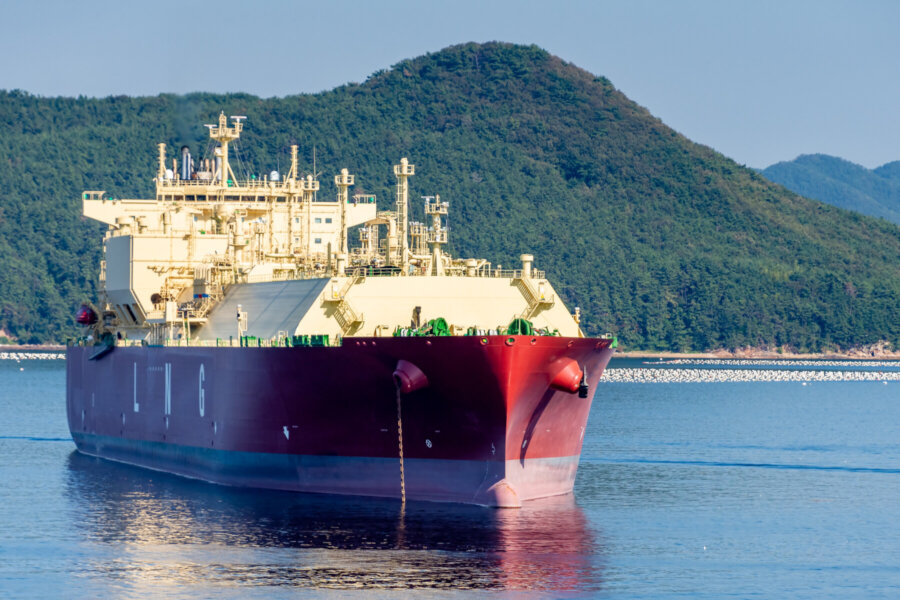
Σταθερά νωχελική η ναυλαγορά των LNG carriers
Σε χαμηλά επίπεδα εξακολουθούν να κυμαίνονται οι ναύλοι των LNG carriers, με την προηγούμενη εβδομάδα να ολοκληρώνεται με τάσεις σταθερότητας. Ειδικότερα, βάσει πρόσφατης έκθεσης…
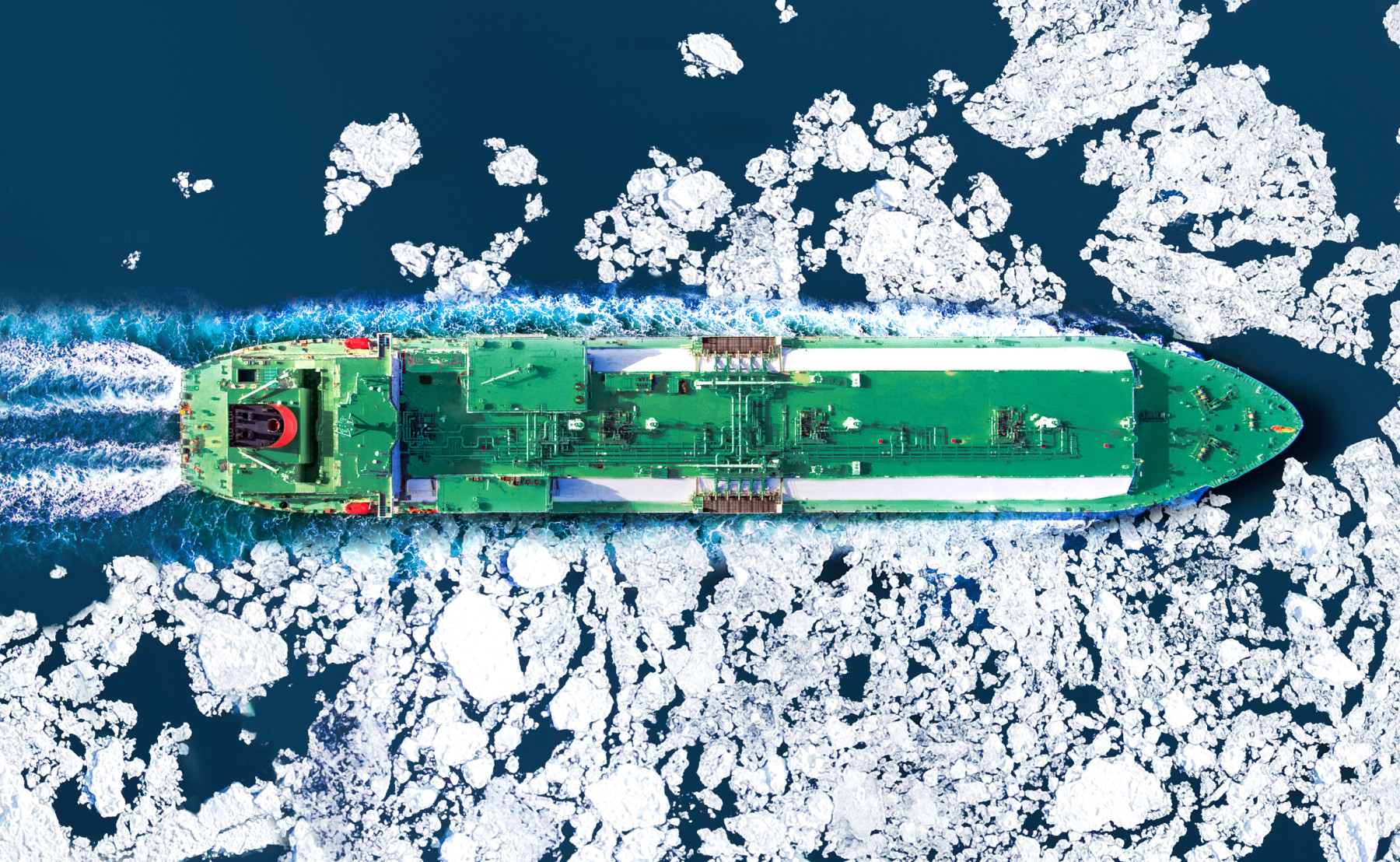
Εκ νέου απόπειρα της Ρωσίας για επανεκκίνηση των εξαγωγών από το Arctic LNG 2
Καθώς οι δυτικές κυρώσεις έχουν παραλύσει τις εξαγωγές ρωσικού LNG από το έργο «Arctic LNG 2», η Μόσχα επιχειρεί μια νέα προσπάθεια επανεκκίνησης των εξαγωγικών…

Τα κύματα καύσωνα, απειλή για το ΑΕΠ της Ευρώπης
Τα κύματα καύσωνα, που πλήττουν την Ευρώπη, μπορεί να επιβραδύνουν την οικονομική ανάπτυξη στη Γηραιά Ήπειρο κατά μισή ποσοστιαία μονάδα, σύμφωνα με έκθεση της…

Νικόλας Δ. Πατέρας: Όραμα, όνειρο και καλοί συνεργάτες είναι τα εχέγγυα επιτυχίας για κάθε εταιρεία και οργανισμό
Συνέντευξη του Νικόλα Δ. Πατέρα, Προέδρου και CEO της Contships Management Inc.
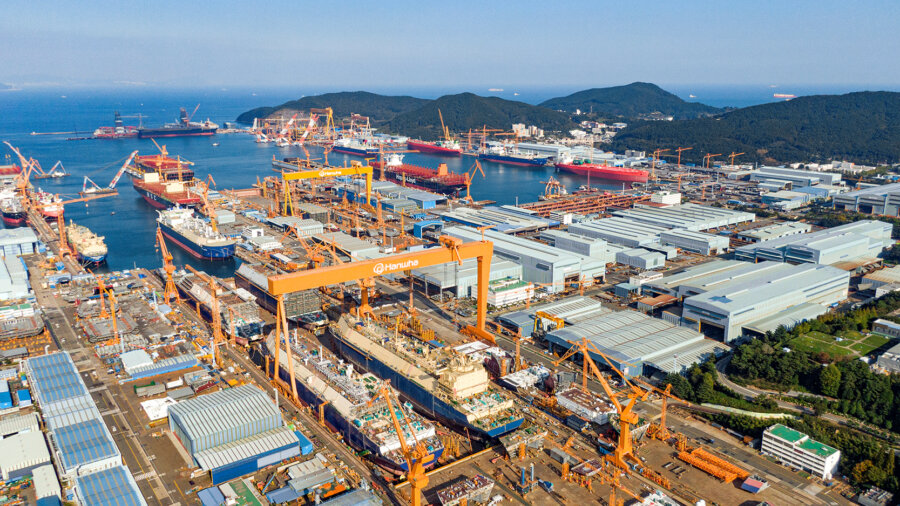
Ψήγματα ελπίδας για το αμερικανικό νηολόγιο με νοτιοκορεατική ώθηση
Στις 27 Ιουνίου, η ναυτιλιακή εταιρεία Hanwha Shipping, θυγατρική του νοτιοκορεατικού ομίλου Hanwha, προχώρησε σε μια σημαντική ανακοίνωση, που σηματοδοτεί την επέκταση της παρουσίας…
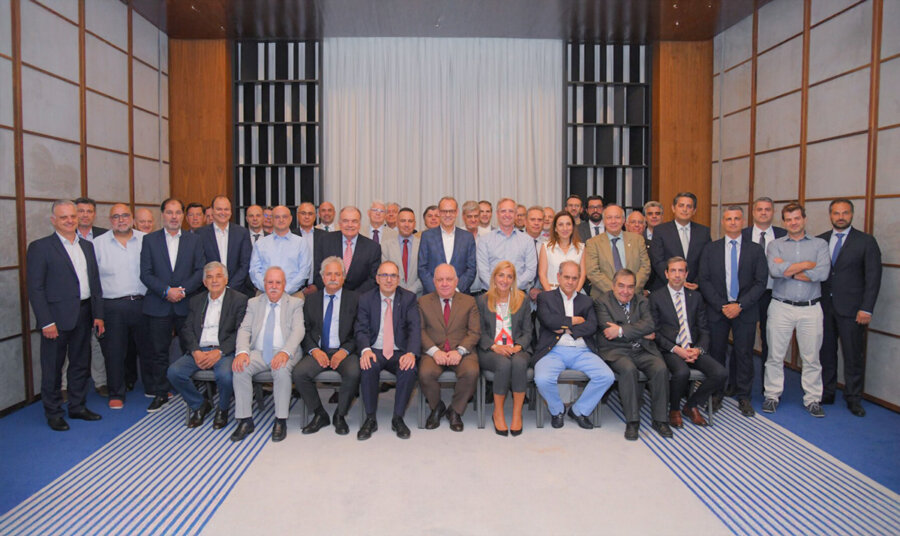
Όσα συζητήθηκαν στην 38η Συνάντηση της Ελληνικής Ναυτιλιακής Τεχνικής Επιτροπής του BV
Η Bureau Veritas Marine & Offshore (BV) πραγματοποίησε με επιτυχία την 38η συνάντηση της Ελληνικής Ναυτιλιακής Τεχνικής Επιτροπής στην Αθήνα στις 24 Ιουνίου, επιβεβαιώνοντας…
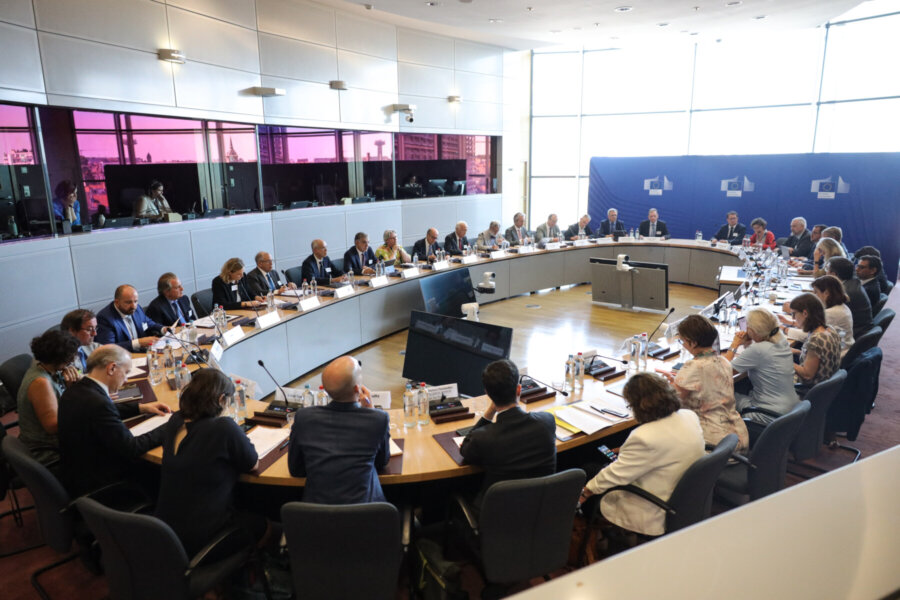
Συμμετοχή του ESN στο διάλογο για τη ναυτιλιακή βιομηχανική στρατηγική της ΕΕ της Επιτροπής Μεταφορών και Τουρισμού
Το European Shortsea Network, εκπροσωπούμενο από τον Πρόεδρο Χαράλαμπο Σημαντώνη, συμμετείχε στον Στρατηγικό Διάλογο υψηλού επιπέδου για τη Ναυτιλιακή Βιομηχανική Στρατηγική της ΕΕ (strategic…
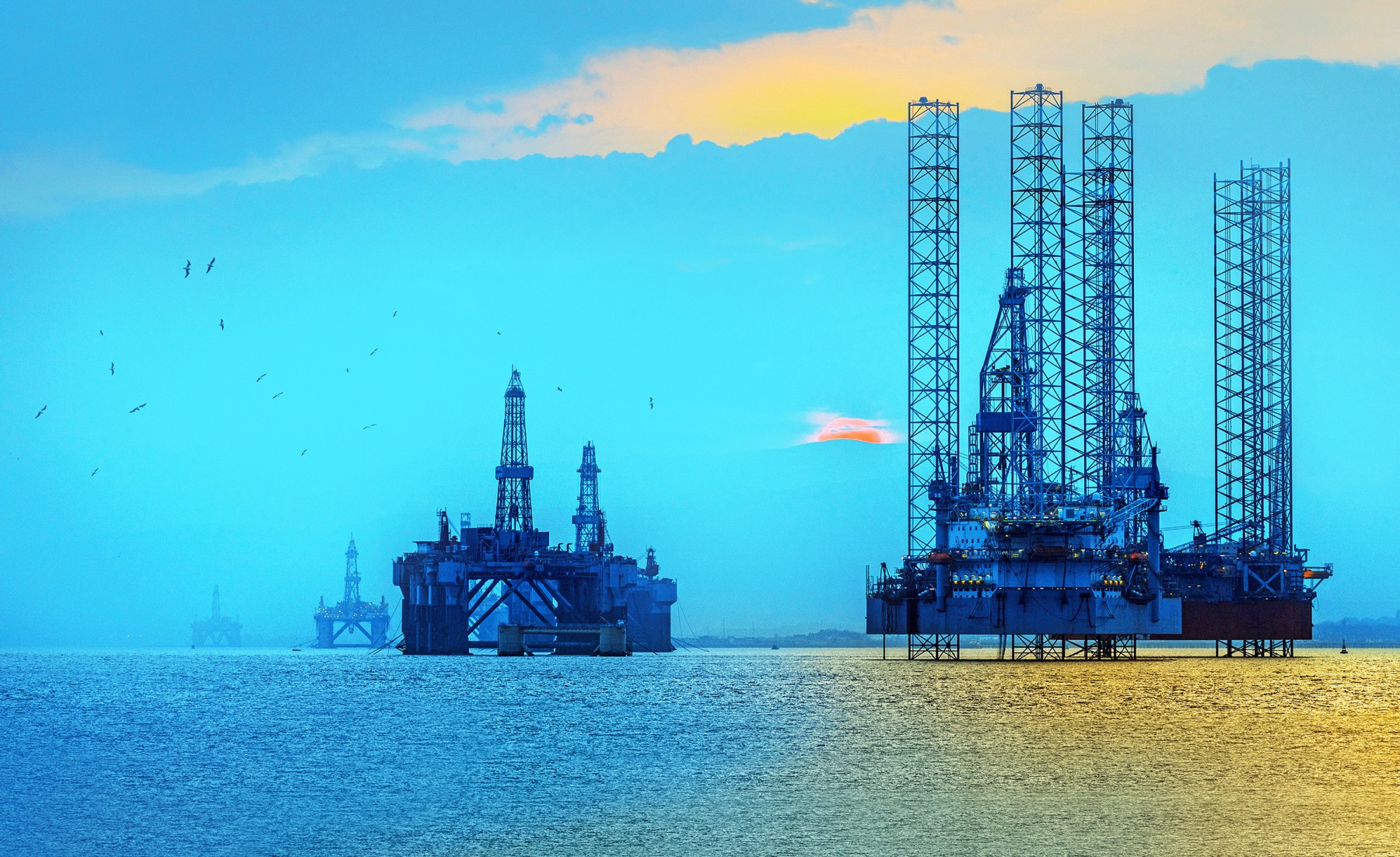
Ιράν, OPEC+ και δασμοί οδηγούν σε πτώση το πετρέλαιο
Πτώση καταγράφουν οι διεθνείς τιμές του πετρελαίου, την Παρασκευή 4 Ιουλίου, στον απόηχο της δέσμευσης του Ιράν ότι θα τηρήσει τη Συνθήκη Μη Διάδοσης…
